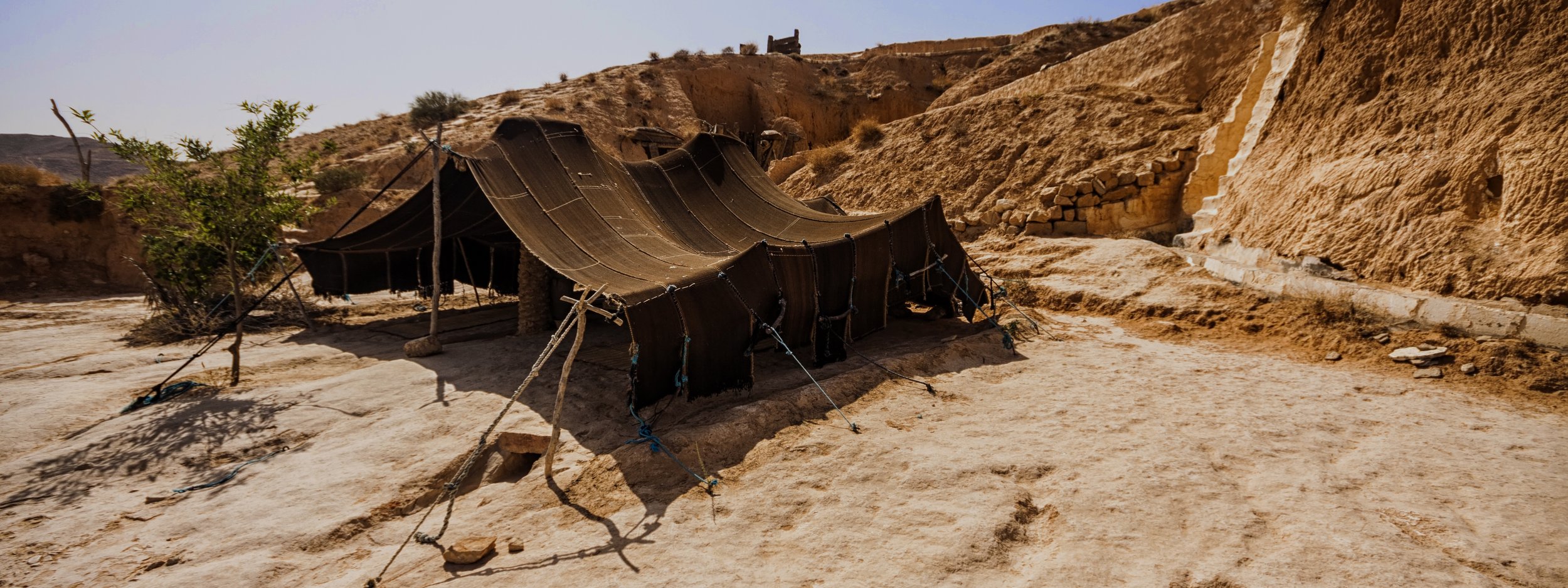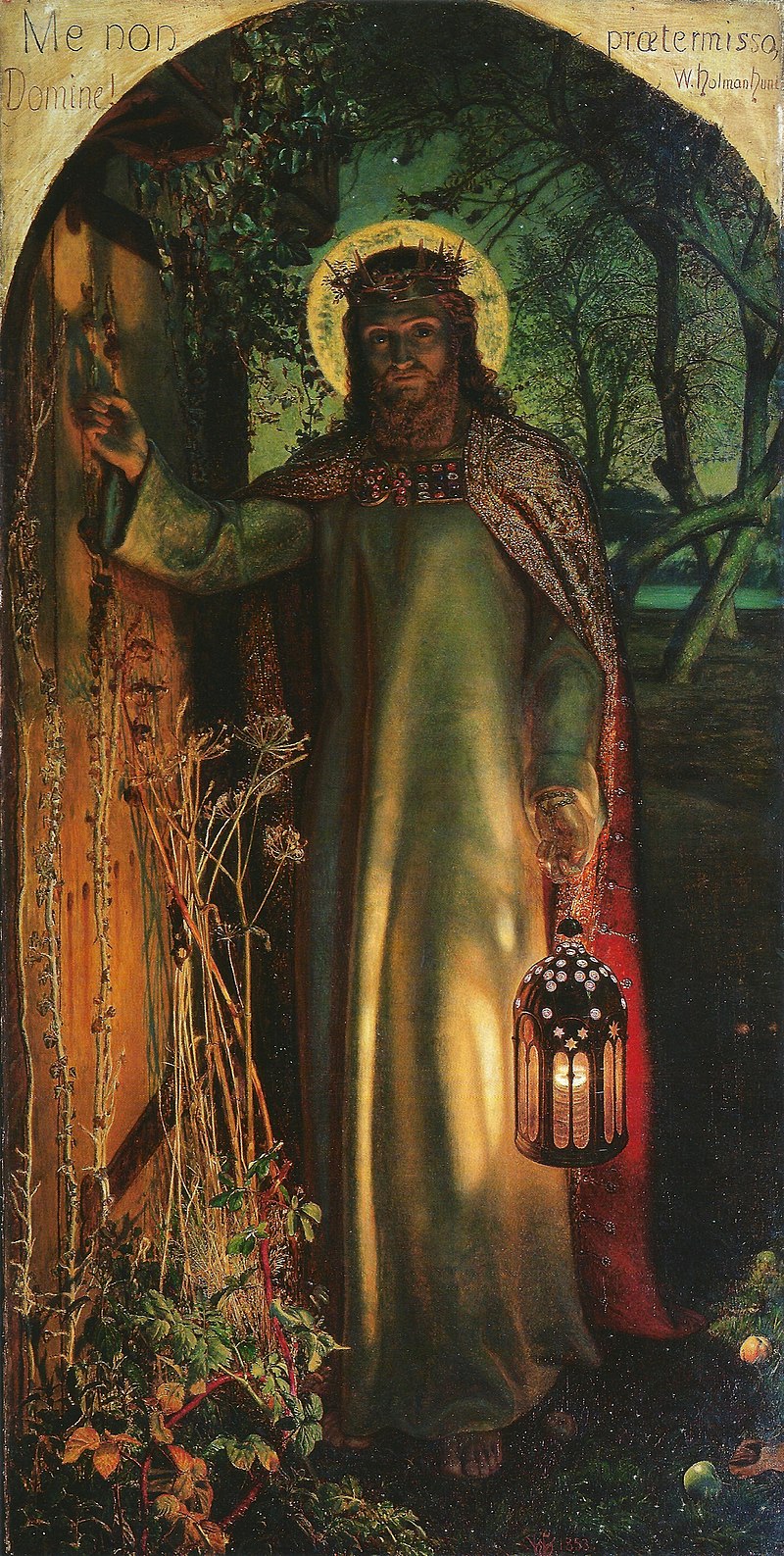Joshua: Courage Over Fear
A Sermon Series
“Be Strong and Courageous”
Joshua 1
Introduction
One summer morning as Ray Blankenship was preparing his breakfast, he gazed out the window, and saw a small girl being swept along in the rain-flooded drainage ditch beside his Andover, Ohio, home. Blankenship knew that farther downstream, the ditch disappeared with a roar underneath a road and then emptied into the main culvert. Ray dashed out the door and raced along the ditch, trying to get ahead of the foundering child. Then he hurled himself into the deep, churning water. Blankenship surfaced and was able to grab the child’s arm. They tumbled end over end. Within about three feet of the yawning culvert, Ray’s free hand felt something–possibly a rock– protruding from one bank. He clung desperately, but the tremendous force of the water tried to tear him and the child away. “If I can just hang on until help comes,” he thought. He did better than that. By the time fire-department rescuers arrived, Blankenship had pulled the girl to safety. Both were treated for shock. On April 12, 1989, Ray Blankenship was awarded the Coast Guard’s Silver Lifesaving Medal. The award is fitting, for this selfless person was at even greater risk to himself than most people knew. Ray Blankenship couldn’t swim.[1]
Prayer
God’s Purposes Do Not Change (vv. 1-9)
God’s plan for the Israelites is laid out in the first five books of the Bible, and specifically in the book of Deuteronomy they are given specific instructions for what to do once they enter into the promised land.
There have been three delays for God’s people entering into the promised land, 1) In Gen. 15 God tells Abram[2] that the people would enter into slavery for 400 years, then God had set a time of forty years (so the entire generation over 20 had to die in the wilderness because of their lack of faith), 2) Moses had lost his temper before God’s people and because he did that he forfeited his right to enter into the promised land, but God honored his leadership by waiting until his death to enter (Num. 20:6-12; Duet. 1:37, 3:26). 3) 15:16 “And they shall come back here in the fourth generation, for the iniquity of the Amorites is not yet complete.” We are not told what the sin of the Amorites was that they are being judged for, but when Joshua crossed over and conquers the promised land it is an act of judgement upon the enemies of God.
God Calls People to His Purposes (vv. 1-5)
After the death of Moses the servant of the Lord, the Lord said to Joshua the son of Nun, Moses’ assistant, 2 “Moses my servant is dead.[3] Now therefore arise, go over this Jordan, you and all this people, into the land that I am giving to them, to the people of Israel. 3 Every place that the sole of your foot will tread upon I have given to you, just as I promised to Moses. 4 From the wilderness and this Lebanon as far as the great river, the river Euphrates, all the land of the Hittites to the Great Sea toward the going down of the sun shall be your territory. 5 No man shall be able to stand before you all the days of your life. Just as I was with Moses, so I will be with you. I will not leave you or forsake you.
Prior to Moses’ death, Joshua was appointed to be his successor in Numbers 27:18-23. (V. 22) “And Moses did as the Lord commanded him. He took Joshua and made him stand before Eleazar the priest and the whole congregation, 23 and he laid his hands on him and commissioned him as the Lord directed through Moses.” Then after some time, Moses passed away. So Joshua has this calling upon his life to do this specific thing – lead God’s people.
People change over time – all the people who had left Egypt in the great exodus had now wandered in the desert for forty years because of their rebellion. Those who were less than twenty at the Exodus, and all those born since, are essentially a new group of God’s people (prayerfully they have learned from the mistakes of the previous generation).
And now that Moses is dead, there is also a new leader. So, people in the plan of God change, but God’s purposes don’t change. The plan, even though its been five hundred years since God announced it, it is still the plan. God is going to give His people a promised land.
“I will not leave you or forsake you.” Literally this means “I will not fail you.” We see this verse quoted on Hebrews 13:5 quotes this same verse in the context of not loving money, God will be with you and give you what you need to complete the mission.
God’s Purposes Are Accomplished When His People Obey His Word (vv. 6-9)
6 Be strong and courageous, for you shall cause this people to inherit the land that I swore to their fathers to give them. 7 Only be strong and very courageous, being careful to do according to all the law that Moses my servant commanded you. Do not turn from it to the right hand or to the left, that you may have good success wherever you go. 8 This Book of the Law shall not depart from your mouth, but you shall meditate on it day and night, so that you may be careful to do according to all that is written in it. For then you will make your way prosperous, and then you will have good success. 9 Have I not commanded you? Be strong and courageous. Do not be frightened, and do not be dismayed, for the Lord your God is with you wherever you go.”
So while there may be a new leader, God’s Word is still the same. Notice that in the opening verses we see that Joshua has the law of Moses – He already has the written Word of God. Francis Schaeffer wrote, “Joshua knew Moses, the writer of the Pentateuch, personally. Joshua knew his strengths and weaknesses as a man; he knew that Moses was a sinner, that Moses made mistakes, that Moses was just a man. Nonetheless, immediately after Moses’ death Joshua accepted the Pentateuch as more than the writing of Moses. He accepted it as the writing of God.”[4] And God tells him, that his success as a leader would be dependent upon, not just knowing it, but keeping it “that you may have good success wherever you go.”
God moves people in and out of his plan, but God’s Word stays the same and it is God’s Word that remains our source of authority to complete God’s work. In Genesis, Exodus, Leviticus, Numbers, and Deuteronomy, Moses heard from God directly. God told Moses in person what to do, but now Joshua is pointed to the written Word of God to follow. Even though Joshua would encounter the “commander of the Lord’s Army” in chapter 5, and Joshua is given specific instructions about upcoming battles, Joshua was to live and lead according to the written Word of God.
In order to do this Joshua is given four things to do with God’s Word: 1) Study God’s Word “being careful to do according to all the law that Moses my servant commanded you.” In order to be careful to do it, you have to know what it says, which requires diligent study. The written Word of God from it’s beginning was not stored in the Ark of the covenant, it was to be carried around, rolled out and read, again and again.
It was not a relic to be on a shelf, it was a tool to be faithfully and diligently used. The printing press had not been invented yet, so the people did not have personal copies of God’s Word, but it was read aloud, and it was accessible to the people (see Duet. 31:11-13).
2) (v. 8) Talk About God’s Word “This Book of the Law shall not depart from your mouth . . .” Joshua and the people’s lives revolved around the word of God, so when you make plans, or discuss your children, or your careers – how can you discuss those things as a follower of God and not discuss His Word that speaks directly to those things.
3) “meditate on it day and night,” – To meditate in something is more than studying it, and talking about it, now you are pulling things from it. When you meditate on God’s Word you are seeking to apply it. What does this mean? How do I apply it to my life?
4) Obey the Word of God “being careful to do according to all the law that Moses my servant commanded you,” Psalm 1:2-3 talks about the righteous man “ . . but his delight is in the law of the Lord, and on his law he meditates day and night. 3 He is like a tree planted by streams of water that yields its fruit in its season, and its leaf does not wither. In all that he does, he prospers.” In order to prosper in the ways of the Lord, and to be a success at the task that God has called you to, the place the Word of God occupies in your life is critical.
As we will see, Joshua was a great leader, and it was because he studied God’s Word, he talked about God’s Word, he meditated on God’s Word and the most important, he did God’s Word. If we fast forward to the end of Joshua’s leadership, look at one of his last instructions to the people, Joshua 23:6 “Therefore, be very strong to keep and to do all that is written in the Book of the Law of Moses, turning aside from it neither to the right hand nor to the left,”
Joshua Assumes Command (vv. 10-18)
We see in these verses where Joshua has become the new leader of God’s people – he seems to scared to death. He is told multiple times, “Be strong and courageous. Do not be frightened, and do not be dismayed,” – so Joshua is frightened; so, how do we do what God has called us to do, even though we may be concerned of failure? You can look back to your past.
This is not the first time we see Joshua leading; we first see him leading in battle in Exodus 17:8-16. The Israelites are making their way through the wilderness and the Amalekites come out against them. Moses goes up on a mountain and holds up his arms and staff – and Joshua is sent to lead the troops in the valley below. As long as Moses kept his hands up, God’ s people would be winning, but as Moses grew tired his hands would drop and the Amalekites would be winning. And once they had won the victory,
13-14 “And Joshua overwhelmed Amalek and his people with the sword. 14 Then the Lord said to Moses, “Write this as a memorial in a book and recite it in the ears of Joshua, that I will utterly blot out the memory of Amalek from under heaven.” As Joshua was studying, and meditating, and talking about, and doing God Word – he would have come across this battle and remembered – the battle was won by prayer, teamwork, and God’s presence working on the battlefield – not his military talent. Your success, to do what God has called you to do, is bigger than just you – there are bigger things going on than you even know about. You are a part of a much bigger plan.
The second time we see Joshua is on Mt. Sinai. There is a moment when Moses, Aaron, and seventy elders saw God and ate and drank in God’s presence. When Moses went up onto the mountain to receive the law on the stone tablets, Joshua went with him.
Exodus 24:13 “So Moses rose with his assistant Joshua, and Moses went up into the mountain of God.” He came back down with Moses to deal with the situation of these same leaders, who had sat in the presence of God, now had made golden calves and were worshipping them. God is holy and will not tolerate His people worshipping other gods.
The third time we see Joshua is when he is sent into the promised land as a spy. When the spies returned all their stories were the same, “the land is flowing with milk and honey.” But only Joshua and Caleb had faith that God would give them the land – yes there were giants in the land, but God was much bigger than they were.
Numbers 14:6-9 “And Joshua the son of Nun and Caleb the son of Jephunneh, who were among those who had spied out the land, tore their clothes 7 and said to all the congregation of the people of Israel, “The land, which we passed through to spy it out, is an exceedingly good land. 8 If the Lord delights in us, he will bring us into this land and give it to us, a land that flows with milk and honey. 9 Only do not rebel against the Lord. God requires that His people have faith.
So when it was time for Joshua to lead the nation, forty years has passed, he had seen God do mighty things, he knew that God was holy, and he knew, from experience, that God’s people had to trust Him and follow His Word.
What was Joshua so afraid of? He had seen military victories, He had trembled before the mighty power of God – He knew no one or army was greater than God. I think Joshua was afraid that the people wouldn’t listen and because of their hard heartedness, they would have to circle back to another forty years of death in the wilderness. They would not follow Moses into the Promised Land, why would they follow him?
There is nothing more terrifying to a leader than wasted years walking around in a desert.
It is wonderful to lead people into the land flowing with milk and honey, it’s quite another thing to be the leader of a people who would rather walk around in the wilderness. So, he gives the order.
10 And Joshua commanded the officers of the people, 11 “Pass through the midst of the camp and command the people, ‘Prepare your provisions, for within three days you are to pass over this Jordan to go in to take possession of the land that the Lord your God is giving you to possess.’”
The time had finally arrived after over a million funerals and forty years of wandering in the wilderness, it was finally time to pass into the promised land. Three days to prepare yourself, your family, and to get your stuff ready – we are about to enter into the promised land. Only two men knew what lay ahead – Joshua and Caleb. Both had seen the enemy’s size, the walled fortresses, and the “land flowing with milk and honey.”
12 And to the Reubenites, the Gadites, and the half-tribe of Manasseh Joshua said, 13 “Remember the word that Moses the servant of the Lord commanded you, saying, ‘The Lord your God is providing you a place of rest and will give you this land.’ 14 Your wives, your little ones, and your livestock shall remain in the land that Moses gave you beyond the Jordan, but all the men of valor among you shall pass over armed before your brothers and shall help them, 15 until the Lord gives rest to your brothers as he has to you, and they also take possession of the land that the Lord your God is giving them. Then you shall return to the land of your possession and shall possess it, the land that Moses the servant of the Lord gave you beyond the Jordan toward the sunrise.”
God had already instructed a couple of the tribes what to do when they enter into the promised land. Numbers 32 and Deuteronomy 3:18-20 records that Reuben, Gad and the half-tribe of Mannasseh should be given the land east of the Jordan, but that they were to go in and fight with the other tribes until all the land was conquered. Because Joshua was studying God’s Word, meditating on it, talking about it, and doing it – he knew what to do when it was time to put a plan together.
In Joshua’s mind, he would have remembered the day when he and Caleb came back after scouting out the Promised Land, and gave the report to the people that was part of Moses’ plan to enter the Promised Land. Numbers 14:1-14 “Then all the congregation raised a loud cry, and the people wept that night. 2 And all the people of Israel grumbled against Moses and Aaron. The whole congregation said to them, “Would that we had died in the land of Egypt! Or would that we had died in this wilderness! 3 Why is the Lord bringing us into this land, to fall by the sword? Our wives and our little ones will become a prey. Would it not be better for us to go back to Egypt?” 4 And they said to one another, “Let us choose a leader and go back to Egypt.” . . . (v. 11) “Then all the congregation said to stone them with stones.”
Now it was Joshua in charge – how would they respond to the command to pack up and prepare to enter into the promised land?
16 And they answered Joshua, “All that you have commanded us we will do, and wherever you send us we will go. 17 Just as we obeyed Moses in all things, so we will obey you. Only may the Lord your God be with you, as he was with Moses! 18 Whoever rebels against your commandment and disobeys your words, whatever you command him, shall be put to death. Only be strong and courageous.”
The people’s hearts were changed. Before they cried out in the night, now they are packing their backs, and preparing to fight. Did they obey Moses in all things? No. But they recognize that God was with Him, Joshua followed God’s Word, so they encourage him, 1) may the Lord your God be with you, as he was with Moses! – confirming he is there because God put him there, just like Moses and 2) “be strong and courageous.” God has his back, and the people have his back, together they go forward to accomplish what God has put before them to do. When God, the leader, and the people come together – then grasshoppers can defeat giants.
_____________________
[1] https://www.sermonillustrations.com/a-z/c/courage.htm
[2] For more information about God’s covenant with Abram, Genesis 15 https://drewboswell.com/gods-covenant-and-abrahams-response-genesis-151-21/
[3] For more information about Moses’ death, Jude 9 https://drewboswell.com/426926-2/
[4] James Montgomery Boice, Joshua We will Serve the Lord (Old Tappan, New Jersey; Fleming H. Revell Publishing, 1989) 21.





